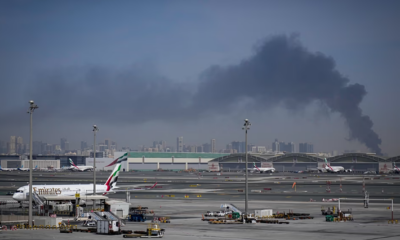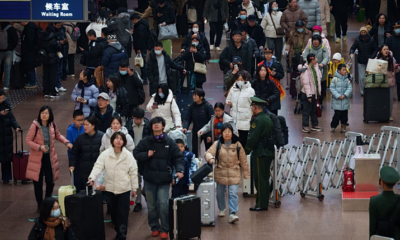Travel
Middle East Conflict Sparks Global Air Travel Disruptions as Airlines Cancel Flights and Close Airspace
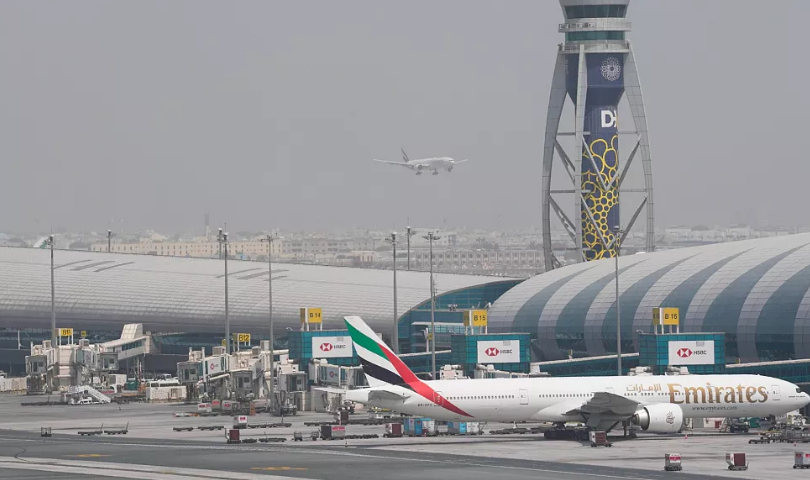
Flight cancellations and airspace closures have intensified across the Middle East and beyond following U.S. airstrikes on Iran, creating ripple effects throughout the global travel network. The disruption stems from escalating tensions after President Donald Trump ordered strikes on three Iranian nuclear and military sites over the weekend, prompting an Iranian missile response targeting the U.S. Al Udeid Air Base in Qatar.
As a precaution, Qatar closed its airspace on Monday, shortly after both the U.S. and U.K. advised their citizens to shelter in place. The conflict, which began earlier this month when Israel launched surprise attacks on Iranian territory, has since spiraled, affecting regional and international air travel.
According to flight tracking platform FlightAware, global cancellations climbed to 243 as of Tuesday morning, with Dubai International Airport recording the most with 26 cancellations by 0600 GMT. Air India led carriers in total cancellations, halting 25 flights globally, many of them connected to Middle Eastern destinations.
Qatar Airways suspended all flights due to the closure of national airspace. “The airline is working closely with government stakeholders and relevant authorities to support impacted passengers and will resume operations when airspace reopens,” the carrier said, noting that delays may continue even after services resume.
Emirates Airlines announced it had suspended all flights to Iran and Iraq, including Baghdad and Basra, through June 30. While other routes continue to operate, several flights have been rerouted to avoid conflict zones.
Etihad Airways also announced regional cancellations, halting flights between Abu Dhabi and Tel Aviv until at least July 15, and suspending services to Doha, Dammam, Kuwait, and Muscat early this week.
Gulf Air, Bahrain’s flag carrier, extended its suspension of flights to Jordan through June 27, citing passenger safety as its top priority. Meanwhile, Singapore Airlines, British Airways, and Japan Airlines all cancelled multiple flights to Dubai and Doha, pointing to security assessments and precautionary measures.
Air India halted all operations to and from the region, as well as routes between India and parts of North America and Europe, redirecting aircraft away from closed airspaces. Philippine Airlines also grounded services to Doha, Dubai, and Riyadh.
Aviation experts stress that these flight disruptions are necessary. “It is the responsibility of states to ensure their airspace is safe for aircraft,” said Hassan Shahidi, President of the Flight Safety Foundation. “Qatar did the absolutely right thing by closing its airspace in the face of imminent conflict.”
Though some flights resumed in the UAE after temporary closure, uncertainty continues to cloud regional airspace. With major Gulf airports serving as global transit hubs, any prolonged disruption could have far-reaching implications.
Shahidi urged governments to prioritize aviation safety, warning against the risk of civilian casualties similar to past tragedies like the downing of Malaysia Airlines Flight 17 over Ukraine in 2014.
“Airlines, air traffic controllers, and crews are doing their best to keep everyone safe,” added Ian Petchenik of Flightradar24. “But as this conflict unfolds, passengers must stay informed through official travel advisories and remain flexible.”
Travel
Middle East Authorities Warn Against Sharing Footage of Iranian Strikes on Social Media
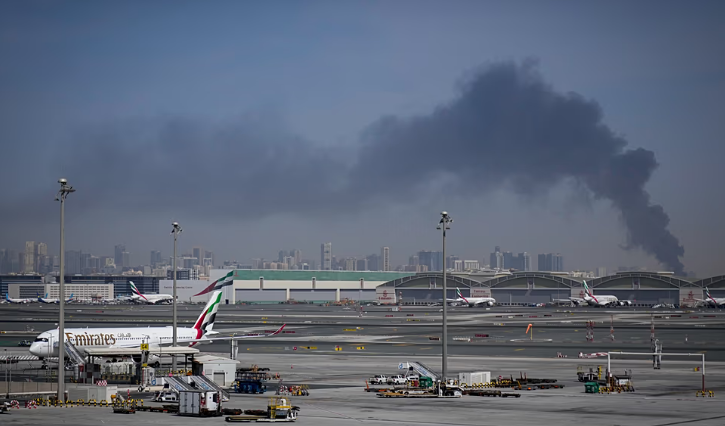
Authorities across the Middle East are cautioning residents, citizens, and visitors about sharing images and videos of Iranian retaliatory strikes, citing security risks and potential legal consequences.
Authorities have restrictions around sharing such images for security purposes and to prevent the spread of fake news. Social media has been flooded with footage from influencers and tourists showing missile interceptions and other military responses in the region. Officials warn that posting such content could reveal the locations of defensive installations or provide information that may aid future attacks.
The concerns are not unique to the region. Similar rules are in place in Ukraine, where the ongoing conflict with Russia has prompted authorities to limit the circulation of footage from conflict zones.
In Bahrain, two people were arrested on February 28 for posting live footage of strikes on social media. The Ministry of Interior said anyone filming, posting, or reposting videos from the scene could face legal action. “This constitutes a legal violation that could harm security and public order,” the ministry stated on X.
Kuwait’s Ministry of Interior issued comparable guidance, asking citizens to refrain from filming missile interceptions or authorities carrying out their duties. The ministry said such content could cause public anxiety, disrupt security operations, and spread inaccurate information. Legal measures will be taken against anyone sharing rumours or misleading news.
Qatar’s Ministry of Interior emphasized avoiding the circulation of images or videos of the aftermath to prevent legal liability. The Dubai Media Office issued similar advice, urging residents to rely on official sources for updates.
Authorities stress the importance of following verified channels for information. Bahrainis can access updates through @moi_bahrain and @bna_en, while UAE residents should refer to @DXBMediaOffice and @ADMediaOffice. Qataris are advised to follow @QNAEnglish and @MOI_QatarEn, and Kuwaitis can check @kuna_en and @Moi_kuw. Jordan and Saudi Arabia have also set up official accounts for timely updates, including @PetranewsEN, @moi_jor, @Spa_Eng, and @MOISaudiArabia.
Several embassies are providing updates to their citizens who register with them. International news outlets such as Euronews are also offering live coverage, with bureaus in Doha and Dubai running continuous updates on their website.
Officials emphasize that following these guidelines protects public safety and ensures accurate reporting during a period of heightened regional tension. Authorities warn that disregarding the rules could carry serious legal consequences, highlighting the need for vigilance and restraint when sharing information online.
Travel
Ryanair Ranks Last in Which? Airline Satisfaction Survey as Jet2 and Singapore Airlines Lead
Travel
AirAsia X to Relaunch London-Kuala Lumpur Route With Bahrain Stopover
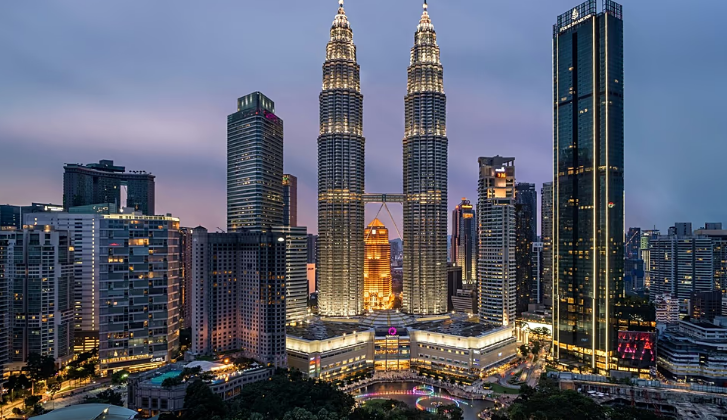
AirAsia X’s revived route between London Gatwick and the Malaysian capital will now include a stopover in Bahrain, the airline confirmed. The low-cost long-haul carrier is set to resume flights between London and Kuala Lumpur this summer, offering travellers a new connection via the Middle Eastern hub.
From 26 June 2026, passengers will be able to fly between Gatwick and Kuala Lumpur International Airport with a layover in Bahrain. Stopover times will range from 90 minutes to two hours, bringing the total journey to approximately 16 and a half hours.
The airline has announced promotional fares booked before 22 February for travel between 26 June and 30 November starting at €85 one-way. However, current ticket searches show the lowest available fares for this period at around €185 one-way from London to Kuala Lumpur.
AirAsia X has been steadily expanding its long-haul network. In mid-November, the airline introduced a direct service between Istanbul’s Sabiha Gökçen International Airport and Kuala Lumpur, a flight taking roughly 10 and a half hours.
The London route marks a return to Europe after more than a decade. AirAsia X previously operated direct flights from London and Paris Orly to Kuala Lumpur, but these were discontinued in 2012 due to rising jet fuel prices, higher taxes, and declining demand. Since then, the airline’s leadership, including CEO Tony Fernandes, expressed interest in restoring European services, with plans gradually materialising over the past few years.
Fernandes, now CEO of Capital A, AirAsia’s parent company, described Bahrain as a “strategic hub” for the airline’s European operations. “This is a defining step in the next phase of AAX’s growth,” he said. “Bahrain as our strategic aviation hub allows us to connect Asia with the Middle East and Europe more effectively while creating a scalable platform for future growth. Looking ahead, we will deepen partnerships with airports, tourism authorities and industry stakeholders to unlock new demand corridors.”
The airline has not disclosed which additional European destinations it may target next. Currently, AirAsia X serves around 150 destinations, covering cities in Australia, China, India, Japan, South Korea, and Uzbekistan, reflecting its wide-reaching network across Asia and beyond.
The relaunch of the London-Kuala Lumpur route with a Bahrain stopover signals AirAsia X’s renewed commitment to long-haul operations in Europe, combining affordability with strategic connectivity. For travellers seeking low-cost options on intercontinental flights, the route offers a competitive alternative to traditional carriers, while providing access to the growing Gulf aviation hub.
-

 Entertainment2 years ago
Entertainment2 years agoMeta Acquires Tilda Swinton VR Doc ‘Impulse: Playing With Reality’
-

 Business2 years ago
Business2 years agoSaudi Arabia’s Model for Sustainable Aviation Practices
-

 Business2 years ago
Business2 years agoRecent Developments in Small Business Taxes
-

 Home Improvement1 year ago
Home Improvement1 year agoEffective Drain Cleaning: A Key to a Healthy Plumbing System
-

 Politics2 years ago
Politics2 years agoWho was Ebrahim Raisi and his status in Iranian Politics?
-

 Business2 years ago
Business2 years agoCarrectly: Revolutionizing Car Care in Chicago
-

 Sports2 years ago
Sports2 years agoKeely Hodgkinson Wins Britain’s First Athletics Gold at Paris Olympics in 800m
-

 Business2 years ago
Business2 years agoSaudi Arabia: Foreign Direct Investment Rises by 5.6% in Q1

